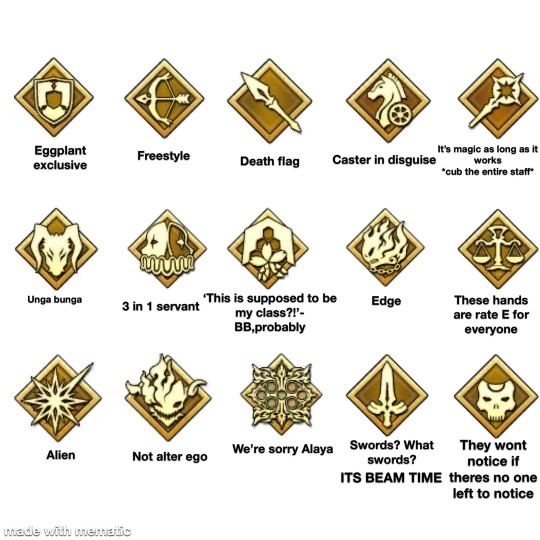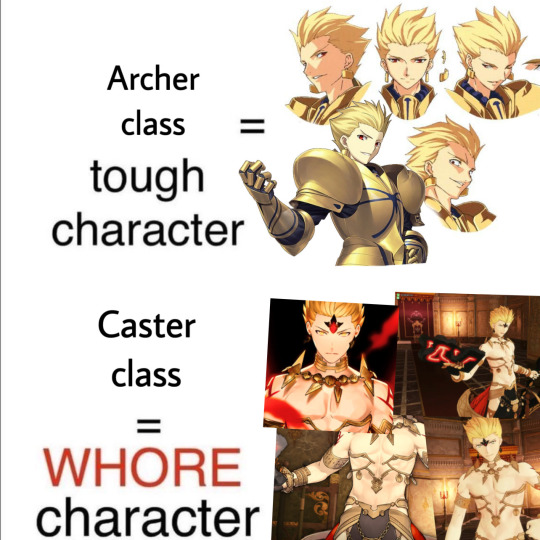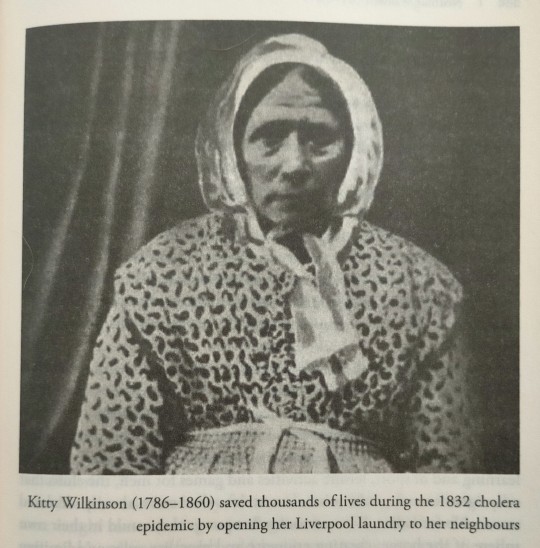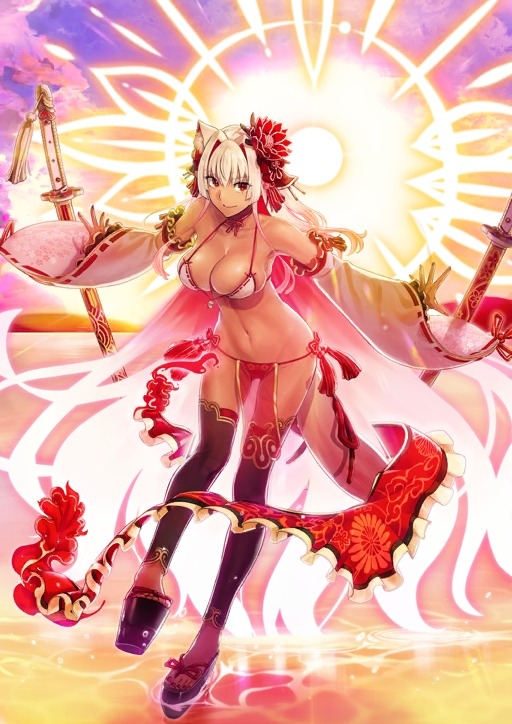#class servants
Text
So from what i understand how the class system work in fgo

#type moon#fate grand order#fgo#fate series#correct me if im wrong#i didnt play the game this is from outside perspective#im so sorry fate fan#fgo shitpost#fate meme#i completely forgot abt saber and assassin class thats why the are at the end#fate#fate stay series#lasengle#fate stay night ubw#alaya or gaia pls confirm#fgo classes#class servants#fgo meme#chaldea#nasuverse#fateposting
373 notes
·
View notes
Text

one thing is certain: we need to nuke england from orbit
#racism tw#sinophobia tw#you had a specifically racialised servant class on your military ships and only dismantled it because you were TOO RACIST TO LET THEM WORK?
1K notes
·
View notes
Text




Rider class Andromeda for the Fate Grand Order event Valentine 2024 - Beyond the Chocolate River -
Illustrator: lack.
#andromeda#rider#rider class#rider servant#servant#fate servant#fate series#fate go#fgo#fate grand order#game#mobile game#fate#official art#typemoon#TYPE-MOON#type moon#fate/ grand order#character art#art#official illustrator#official artist#official illustration#lasengle#lack#fate character#event#game event#valentine event#illustrator
215 notes
·
View notes
Text
very quickly: the expectation that jgy needs to be some kind of working class hero is :/ to begin with, and condemning him for “buying into the system of oppression” is really telling when that’s not a criticism made of anyone else
but the idea that jgy personally is refusing to use his power to uplift the common people is mind bogglingly dumb
i cannot emphasize enough that his primary project for the last decade has been trying to figure out how to get all of the other sects to do their fucking jobs—the jobs they were supposed to have been doing the whole time—so that poor people are less likely to be fucking murdered by monsters.
a concept, if you recall, that was so controversial, nobody questioned that a guy would kill his political opponent’s child over it.
this society balked at “do the jobs you signed up to do,” but it’s somehow jgy’s fault that change is going so slowly? fellas he’s the only one doing anything.
#moi#mdzs talk#jgy tag#jin guangyao#not even your precious wang//xian do anything to uplift the working class#and in fact their enthusiasm in assisting in the destruction of jgy’s reputation may have fucked over the common folks :)#also as a side note#solidarity is a two way street#so why do ppl expect jgy to have solidarity with a group that visciously bullied him (A CHILD) and his mother for years#ppl also love to ignore that jgy canonically treats servants well
150 notes
·
View notes
Text




King of the Cavern Monte Cristo (5* Avenger) ascensions are gorgeous!!!
#fgo#ahhhhhh literally crazy about his final ascension art!!!#his second ascension is probably my fav#the art is so detailed!!!#he’s just single target now instead of aoe#rambling#people are wondering why he couldn’t have been another class but his whole lore revolves around being an avenger so eh#similarly to how Abigail wouldn’t make much sense being a servant of any other class so that’s why she’s been summoned as a foreigner twice#idk it’s not that important tbh#I feel like Dante’s could’ve also worked as a berserker at least but it’s fine
131 notes
·
View notes
Text

#Gilgamesh fans are you all still alive I haven’t heard anything from you in ages#also this meme works for like every servant who is in caster class somehow#fgo#fate grand order#fate#fate go#fgo stuff#fgo meme#fate series#caster gilgamesh#gilgamesh fate#gilgamesh
727 notes
·
View notes
Note
do you know of any IF where you play as a lower class servant to royalty? not like a knight or a spy but something simple like a maid or a butler or something?
Hi Anon,
There are a few titles that would fit your request:
Damnation and Buggery by @damnation-if
Noblesse Oblige by by Hannah Powell-Smith
Tally Ho by Kreg Segall
Please let us know if there are other games!
104 notes
·
View notes
Photo

FATE/GRAND ORDER ORIGINAL SOUNDTRACK VI ALBUM COVER
#Fate Grand Order#Olga Marie Animusphere#U-Olga Marie#Beast VII#anni servant u-olga? in beast class?#much to think about
159 notes
·
View notes
Photo







- Behave yourself when you reach Lanling. Don’t cause any trouble with Jin Zixuan, in particular. He is still the only direct line son of Jin Guangshan. He’s is the heir to the Lanling’s Jin Clan. If you two start fighting, how should I respond as the clan leader? Should I help you beat him up, or punish you?
- Isn’t there a Jin Guangyao, now? I haven’t had many interactions with him, but I find him more agreeable than that Flower Peacock.
#literally scene of the whole showwwwwwwww GOD#f: the untamed#the untamed#mdzs#cql#wei wuxian#xiao zhan#jiang cheng#wang zhuocheng#this scene is so crazy like poor jiang cheng just has no idea it rlly doesn't occur to him that jgy and wwx are the same#bc wwx is his brother so ofc it's different! but in the eyes of everyone else it's not it's the same and wwx knows that#and that tension is soooooooo delicious like literally my fav part of the show#is wwx and his class-awareness like he KNOWS he's second fiddle he knows he cannot ever come across as a threat#he MUST be ambitionless#he's so aware of his role as a favored servant even if his own siblings don't see him that way#anyway i could talk abt it for hours it's so fascinating to meeeee
189 notes
·
View notes
Text
I wish there were more black people who were into iwtv so I can talk about how Louis's class and race interests intersected
#iwtv#amc iwtv#iwtv 2022#its so crazy cus hes from a rich lightskin family in new orleans#like he says hed be a free man of color (not black) if not for jim crow#the intraracial dynamics of new orleans pre-1970 is so genuinely interesting to me and we never get to really get into them bc louis spends#all his time with white/nonblack people and when he is with his black daughter its different bc theyre so isolated from the great black com#like louis was absolutely in jack n jill as a kid. hed be in a blue vein society. hed be an alpha based off his name alone like#hes the black bourgeois class and its so crazy that people say hes middle class in fanworks like no babe. they had darkskin servants#i think it also stems from people relating blackness to poorness. ldpdl is not poor in any sense of the word#he inherented a literal plantation!!!! but because hes black people downplay his class interests (except for other black people)#yknow who really was poor? lestat! like eating syrup sandwiches with the lights and water cut off by the city poor#and yet people act like he grew up hyper rich in fanworks and its like... thats not what happened#you can talk about how jim crow and white supremacy squashed/manipulated the black elite class in nola while acknowledging louis' class#like they both came into the relationship with money (louis' money might have been shorter than lestats#but they still had money)#ldpdl#like i would even wager that louis family dont even consider themselves black like that#cus blackness is defined by whiteness and since louis spends all his time with white people bc of his business hes treated as and sees him-#self as black in a way that his family isnt. theyre only black when theyre made black if that makes sense#theyre black when white people are around
26 notes
·
View notes
Text
Responsibility for public health was now understood to be a task for government, not just for working-class women who – until then – had been the only ones concerned with the cleanliness of slum houses, the only ones asking for clean water and working drains.

One such working-class woman was Kitty Wilkinson, an Irish migrant in Liverpool who had been a cotton mill worker and a domestic servant. She opened up her laundry business to her poor neighbours for a penny a week, allowing them to use her boiler and bleach to disinfect their clothes during the 1832 cholera epidemic. She became known as the 'saint of the slums' and campaigned for public bathhouses for the poor.
"Normal Women: 900 Years of Making History" - Philippa Gregory
#book quotes#normal women#philippa gregory#nonfiction#responsibility#public health#government jobs#working class#cleanliness#slums#clean water#drainage#kitty wilkinson#irish#migrant#liverpool#cotton mill#domestic servant#laundry business#boiler#bleach#disinfecting#30s#1830s#19th century#cholera#saint of the slums#public bathhouse
26 notes
·
View notes
Text
“The impact of both new technology and the growing influx of immigrant workers can best be seen in the New England textile mills. In the 1820s and 1830s, young women from the farm country of New England went to work in the massive brick textile factories springing up along the Merrimack River near Lowell, Massachusetts, and other New England towns. In 1820, Lowell--then called Chelmsford--was a sleepy village of about 200 farm families, located about 25 miles northwest of Boston. Six years later, it had grown into a town of 2,500 and was incorporated as the town of Lowell. In 1830, the population surged to 6,000, and tripled to 18,000 just six years later. By 1850, Lowell boasted a population of 33,000.
What created this booming growth was the rise of the textile industry. Other New England mill towns also grew, but Lowell quickly became the center of the New England textile industry and drew workers--mostly single women as young as 16 or 17--from across New England. These women generally came from the middle ranks of farm families, those that were neither impoverished nor wealthy. The desire to be financially and socially independent, to finance an education, or to simply experience the pleasures of living and working in a larger town drew many young farm women to the mills. Some women did contribute their earnings to their families, but mostly they worked in the mills to earn their own income.
…Mill owners insisted that their female hands be in their boarding houses by 10 o’clock each evening, and they urged boarding house keepers, usually older women, to report any violators to the management. In the early years, women were required to attend church services regularly, and some mill owners even deducted pew rent from the women’s earnings and paid it directly to local churches. These close living and working arrangements created a camaraderie among the women workers, a community of like-minded women who eagerly wanted to improve their minds and their lives. Throughout the 1830s and 1840s, they organized and attended lectures, language classes, sewing groups, and literary ‘improvement circles’--after working a 12-hour day. From one of these circles was born the Lowell Offering, the first journal ever written by and for mill women. The journal published poetry, short stories, and commentary penned by the female workers.
Workers also organized themselves into labor-reform groups to crusade for better working conditions and shorter workdays. As technological innovations enabled women to work faster and produce more, mill owners assigned more machines to workers--without raising wages. For example, at Hamilton Company, one of the mills in Lowell, the average number of looms per weaver more than doubled between 1840 and 1854. The workload for spinners increased as well. Workers were expected to operate more machines at a faster rate. But wages remained the same--although the company reaped higher profits from the workers’ increased productivity.
…In 1846, Elias Howe introduced the first sewing machine. Five years later, in 1851, the addition of a foot treadle for easier operation made the machine an indispensable tool. But instead of easing the sewer’s burden, the sewing machine increased it. Hand sewers could no longer compete with the sewing machine. In one day, one sewing machine operator could do as much work as six hand sewers. Hand sewers were forced to buy or rent sewing machines, or work in garment factories, where they had no control over their wages or hours.
To make matters worse, seamstresses, like the mill workers of New England, were expected to work faster and produce more while working for the same wages. New technology, such as the sewing machine or improved looms, enabled consumers to buy manufactured goods at reasonable prices--but at the expense of factory workers, who were not paid a fair wage for operating this new technology.
…Despite the long hours and low wages, women still preferred working in factories to being domestic servants. At least factory workers had some free time; servants were on call 24 hours a day. Domestics worked up to 16 hours a day, with one afternoon off each week. They earned $1 to $1.25 a week plus board. Servants’ duties varied according to their employers’ requirements and the number of other servants employed in the house. But in general, the work was very demanding. Domestics devoted entire days to washing, baking, ironing and cleaning each room. They were accustomed to heavy physical work--cleaning out fireplaces or emptying chamber pots--and trudging up and down staircases several times a day.
Besides enduring the back-breaking work, servants also had to endure the snobbery of their social ‘superiors.’ During the colonial era, servants were treated as part of the family and joined in all household activities. By the mid-19th century, however, they were regarded as mere hired hands, and were viewed as an inferior class. The Boston census of 1845 categorized servants as part of the ‘unclassified residue of the population.’ No wonder that young women wanted to avoid the social stigma of being a domestic.”
- Harriet Sigerman, “‘I Never Worked So Hard’: Weavers, Stitchers, and Domestics.’” in An Unfinished Battle: American Women, 1848-1865
#harriet sigerman#history#american#class#servants#gender#19th century#1840s#1850s#an unfinished battle
22 notes
·
View notes
Text
Honestly my most unlikely wish for the white day servant is Kingu. I know he was absorbed into Enkidu during their interlude, but now that we have Tiamat playable, I think nows the time to give us him back.
#fgo#fate grand order#kingu#give us Berserker class Kingu it would be awesome#it would also give them a reason to put Tiamat in something#i dont think ive seen her at all since she was made playable.#they could say some nonesense about how his actions in Babylon against Tiamat ingraved him into the throne as a individual servant#just put him in a different outfit or something
18 notes
·
View notes
Text




Rider class Suzuka Gozen (Summer) for the Servant Summer Festival 2023 in Fate Grand Order.
Illustrator: Takenoko Seijin.
#Suzuka Gozen#rider#rider class#rider servant#servant#fate grand order#character#character design#game character#fgo#fate go#fate series#fate#fate/ grand order#lasengle#typemoon#TYPE-MOON#game#mobile game#official art#art#artist#official artist#illustration#official illustration#illustrator#official illustrator#game event#servant summer festival 2023#Takenoko Seijin
406 notes
·
View notes
Text
youtube
Everybody marvels at Avengers in FGO, but what is it that makes them tick? Let's all assemble together and talk about it.
12 notes
·
View notes
Text
It’s always so funny to me when someone can’t tell the difference between an actor who’s over the top and an actor who is doing an intentionally over the top performance. The former can be super aggravating, I get it—but the latter can be so goddamn effective. Especially when you know the actor already, know they’re fully capable of giving normal human facial expressions and chill line deliveries. And they’re out here doing The Absolute Most all of a sudden? It’s for a reason, dude. It’s almost always for a reason. And once you can see past the camp on the surface, it’s so much fun digging in to what emotions the character is actually hiding.
#this is mainly about servant (and to a lesser degree YJ)#like Ambrose in servant is (pardon me) serving SUCH a chaotic performance#but having known her for decades I know full well that’s on purpose#Dorothy is over the top because she HAS to be. because she’s built walls so high around her own grief that the denial comes out in Crazy#and she fully thinks she’s the only one paying attention. the only sane one in the room.#you get glimpses of her being ‘normal’ in flashbacks#still a little Much. still a product of wealth and expectation. detached from reality to a degree.#but the character she becomes after the tragedy is. A Character.#it’s not the woman she was before. she bricked that woman up. she’s taken her performance from television and made a baby blanket out of it#it’s so. so intentional.#and you sort of get a similar thing going with Hewson in early eps of YJ#totally different starting block. Van doesn’t start out traumatized. but she does start out Big#she’s loud she’s silly she’s being intentionally wacky to get laughs out of people#and some of it comes off a little cringe. because it’s a kid playing a role#this is how you like me. I’m gay. I’m butch. I’m hiding.#if I’m a jester you’ll see what I want you to and nothing more. that’s the plan. it’s working. don’t look at the goalie.#not as a person.#but as the show goes on (or as she’s spending time with taissa) she slows down some. quiets. she’s snarkier. holding tension differently.#Hewson starts the performance at an 11 so they can really delve into who Van becomes when the mask is off#when there’s no point in playing the class clown#when it’s like. ah yeah. here’s the kid who grew up too fast.#here’s the kid who’s scared to death. and angry. and willing to fight to live.#it’s not an overacting thing. it’s VAN overacting to keep her secrets#watch the face so you miss what the hands are doing#actors man. actors are fucking cool. storytelling is fucking cool.#deconstructing the illusion is my favorite thing#(anyway still watching servant and it’s still really. Something Else.)
13 notes
·
View notes